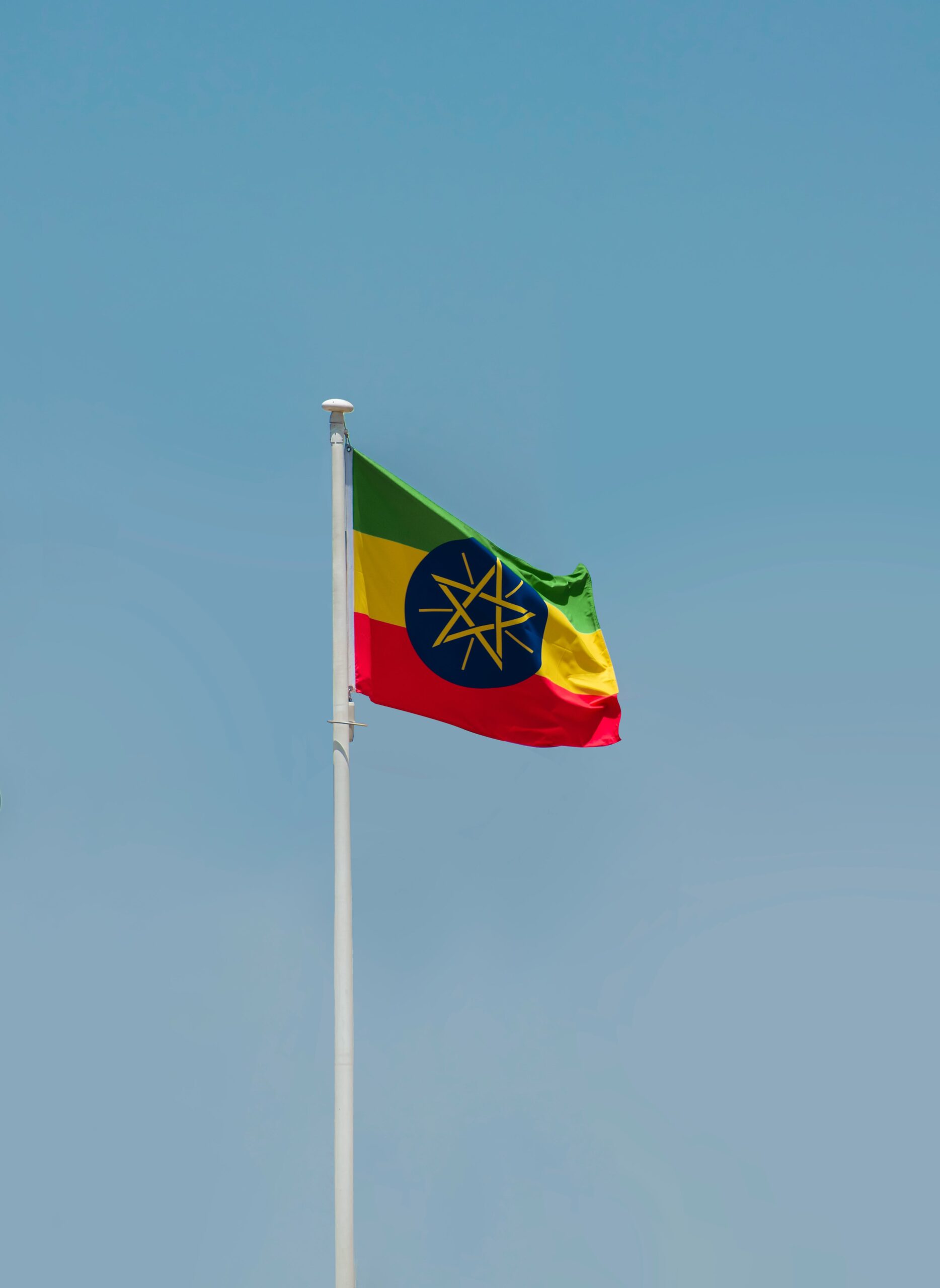Meskel (Finding Of The True Cross) In Ethiopia
The Significance of Meskel (Finding of the True Cross) in Ethiopian Culture
Meskel, also known as the Finding of the True Cross, holds immense significance in Ethiopian culture and tradition. This religious holiday commemorates the discovery of the True Cross by Queen Helena, the mother of Emperor Constantine the Great. According to Ethiopian Orthodox Christian belief, the cross upon which Jesus Christ was crucified was hidden until Queen Helena found it in the 4th century.
The celebration of Meskel is deeply rooted in the Christian faith of the Ethiopian people. It is a time of great joy and festivity as believers come together to honor the cross and the redemption it represents. Meskel falls on September 27th (or September 28th in leap years) and is a national holiday in Ethiopia, observed with immense fervor and enthusiasm.
One of the key customs associated with Meskel is the lighting of a large bonfire known as Demera. This bonfire symbolizes the direction given to Queen Helena in a dream to light a fire, which would reveal the hiding place of the True Cross. The lighting of the Demera is a spectacular event, with crowds of people gathering around the bonfire, singing hymns, and celebrating the triumph of the cross.
Meskel celebrations also include vibrant processions, where priests and believers dressed in traditional white clothing carry ceremonial crosses and chant hymns. The atmosphere is filled with music, dance, and prayers, creating a festive ambiance that brings communities together in joyous unity.
Beyond its religious connotations, Meskel plays a crucial role in uniting the Ethiopian people and preserving their cultural identity. It serves as a testament to the country’s rich Christian heritage and reinforces the sense of national pride and solidarity among its citizens. The traditions associated with Meskel have been passed down through generations, highlighting the enduring legacy of this significant cultural observance.
Meskel is not just a religious holiday; it is a powerful symbol of faith, hope, and unity in Ethiopian culture. The celebration of the Finding of the True Cross continues to hold great importance in the hearts of the Ethiopian people, emphasizing the enduring legacy of their ancestral beliefs and traditions.
The Historical Background of Meskel Celebrations in Ethiopia
The Meskel festival, also known as the Finding of the True Cross, holds immense cultural and religious significance in Ethiopia. The roots of this vibrant celebration date back to the 4th century AD when Queen Helena, the mother of Emperor Constantine the Great, discovered the True Cross on which Jesus Christ was crucified. This pivotal event is commemorated annually on the 27th of September in Ethiopia.
During the 4th century, after Queen Helena’s miraculous discovery, the tradition of Meskel was established to honor this significant moment in Christian history. Over time, the festival became deeply ingrained in Ethiopian culture, representing the essence of faith, unity, and spirituality for the Ethiopian Orthodox Tewahedo Church community.
The Meskel celebrations in Ethiopia are a blend of ancient Christian traditions and local customs. The festivities begin with the Demera procession, where bonfires called "Demera" are lit in towns and villages across the country. These bonfires symbolize the bonfire that Queen Helena lit to guide her to the True Cross. The vibrant display of lights, chanting, and traditional hymns creates a mesmerizing atmosphere during the procession.
Throughout history, Meskel has been a symbol of triumph over adversity and a reflection of the Ethiopian people’s enduring faith. Despite various political changes and challenges over the centuries, Meskel has remained a cornerstone of Ethiopian cultural identity and continues to be cherished by people of all ages.
In contemporary times, Meskel celebrations have evolved to include cultural performances, feasting, and vibrant gatherings that bring communities together. The fusion of traditional rituals with modern elements has made Meskel a dynamic and inclusive festival that attracts visitors from around the world.
The historical background of Meskel celebrations in Ethiopia reflects a rich tapestry of religious devotion, cultural heritage, and community spirit. As the festival continues to evolve and adapt to modern times, its essence as a symbol of unity and faith remains unchanged, making it a cherished tradition for generations to come.
Traditional Rituals and Practices During Meskel Festivities
Meskel, or the Finding of the True Cross, is one of the most significant religious and cultural celebrations in Ethiopia. The festival marks the discovery of the True Cross by Queen Helena in the 4th century. Meskel falls on September 27th and is a vibrant and colorful event that brings communities together to commemorate this important moment in Ethiopian history.
One of the central rituals during Meskel is the burning of a large bonfire called "Demera." The Demera symbolizes the bonfire that Queen Helena lit to guide her to the True Cross. This ritual usually takes place on the eve of Meskel, with priests and worshippers gathering around the bonfire to sing hymns and offer prayers. The lighting of the Demera is a moment of great joy and spiritual significance for all Ethiopians.
Another important tradition during Meskel is the scattering of yellow daisies, known as "Adey Abeba," which are considered to be the favorite flowers of Queen Helena. Pilgrims and participants in the festivities dress in traditional white garments and head to the nearest Meskel square to sing and dance while holding these flowers. The sight of thousands of people dressed in white, holding yellow daisies, creates a mesmerizing and joyous atmosphere during the celebrations.
Meskel is also a time for families and communities to come together and share meals. Injera, a traditional Ethiopian flatbread, is a staple dish during the festivities, along with zesty stews and spicy meat dishes. Families gather around large mesobs (traditional tables) to enjoy these meals together, reinforcing the sense of unity and togetherness that is central to Meskel celebrations.
Moreover, traditional dances and music are integral parts of Meskel festivities. Ethiopian cultural troupes perform traditional dances such as the eskista, a shoulder-shaking dance, and the amharic, a dance that involves synchronized shoulder movements. These performances add to the festive spirit of Meskel and showcase the rich cultural heritage of Ethiopia to both locals and tourists.
Meskel is a deeply symbolic and joyous celebration in Ethiopia that brings together religious devotion, cultural pride, and community spirit. The traditional rituals and practices during Meskel festivities highlight the blend of religious significance and cultural traditions that make this event a unique and cherished part of Ethiopian heritage.
Impact of Meskel Celebrations on Tourism in Ethiopia
The Meskel festival, also known as the Finding of the True Cross, is one of the most significant cultural and religious celebrations in Ethiopia. This vibrant and colorful festival not only holds immense cultural importance for the Ethiopian people but also has a significant impact on tourism in the country. The unique blend of religious ceremonies, traditional dances, and community gatherings during Meskel festivities attracts visitors from around the world, contributing to the growth of the tourism industry in Ethiopia.
One of the main reasons why Meskel celebrations have a positive impact on tourism in Ethiopia is the rich cultural experience they offer to both domestic and international tourists. The festival provides a unique opportunity for visitors to witness traditional rituals, vibrant processions, and colorful performances that showcase the cultural heritage of Ethiopia. Tourists are not only able to participate in the festivities but also gain insight into the country’s rich history and religious traditions, making Meskel celebrations a must-see cultural event for travelers.
Moreover, Meskel celebrations create a sense of community and unity among the Ethiopian people, which is also attractive to tourists. The festive atmosphere, marked by joyful singing, dancing, and feasting, reflects the hospitality and warmth of the Ethiopian culture. Tourists are often welcomed to join in the celebrations, allowing them to immerse themselves in the local traditions and forge connections with the Ethiopian people. This sense of inclusivity and shared celebration enhances the overall tourism experience and encourages visitors to return to Ethiopia.
In addition to cultural experiences, Meskel celebrations also contribute to the economic development of the country through tourism revenue. The influx of tourists during the festival period boosts local businesses, including hotels, restaurants, souvenir shops, and transportation services. The increased demand for accommodation and services provides economic opportunities for local communities, creating jobs and stimulating growth in the tourism sector. As a result, Meskel celebrations play a vital role in promoting sustainable tourism development in Ethiopia.
Furthermore, the international recognition of Meskel as a UNESCO-recognized Intangible Cultural Heritage of Humanity has elevated its status on the global stage, attracting even more tourists to Ethiopia. The festival’s inclusion on UNESCO’s list highlights its cultural significance and contributes to its popularity among travelers interested in cultural tourism. This recognition not only promotes Ethiopia as a culturally rich destination but also preserves and safeguards the traditional rituals and practices associated with Meskel festivities for future generations.
The impact of Meskel celebrations on tourism in Ethiopia is profound and multifaceted. From offering unique cultural experiences to stimulating economic growth and promoting international recognition, the festival plays a crucial role in showcasing the cultural heritage and traditions of Ethiopia to the world. Meskel celebrations continue to be a major draw for tourists seeking authentic cultural experiences, making them a key driver of tourism in Ethiopia.
Meskel Festivities: Modern Adaptations and Contemporary Significance in Ethiopian Society
Over the years, Meskel, also known as the Finding of the True Cross, has evolved in Ethiopian society, blending ancient traditions with modern practices to create a vibrant cultural celebration. The festival holds a deep-rooted significance and continues to play a crucial role in the lives of Ethiopians, both locally and globally.
One of the modern adaptations of Meskel festivities is the integration of technology and social media platforms to spread awareness and invite participation from a wider audience. Through live streams, virtual events, and interactive campaigns, the essence of Meskel is shared with people around the world, fostering a sense of unity and connection among the Ethiopian diaspora.
Furthermore, Meskel celebrations have become a symbolic representation of Ethiopian identity and pride. The festival serves as a reminder of the country’s rich heritage and religious roots, instilling a sense of cultural belonging among the younger generation. It acts as a bridge between the past and the present, preserving age-old customs while embracing the changing dynamics of modern society.
In contemporary Ethiopian society, Meskel has also become a significant economic driver, especially in the tourism sector. The vibrant processions, traditional dances, and elaborate ceremonies attract both local and international visitors, contributing to the growth of the country’s tourism industry. Hotels, restaurants, and local businesses benefit from the influx of tourists during the festive season, stimulating economic development in host communities.
Moreover, the modern adaptations of Meskel festivities have sparked creativity and innovation in various art forms, such as music, dance, and fashion. Ethiopian artists and designers draw inspiration from the colors, symbols, and traditions associated with Meskel, creating contemporary pieces that showcase the beauty and diversity of Ethiopian culture. These creations not only serve as a form of artistic expression but also contribute to the promotion and preservation of Ethiopia’s cultural heritage.
Meskel celebrations have undergone a transformation in Ethiopian society, blending ancient customs with modern influences to create a dynamic and inclusive cultural event. The festival’s contemporary significance lies in its ability to unite people, celebrate diversity, and promote Ethiopia’s rich cultural legacy on a global platform. As Meskel continues to evolve with the changing times, its enduring charm and significance will undoubtedly enrich the cultural tapestry of Ethiopian society for generations to come.
Conclusion
As Meskel celebrations continue to be an integral part of Ethiopian culture and heritage, the significance of this festival cannot be overstated. Rooted in the historical event of the finding of the True Cross, Meskel holds deep religious importance for the Ethiopian Orthodox Tewahedo Church and serves as a symbol of faith, hope, and unity for the Ethiopian people. The annual festivities bring together individuals from all walks of life, reinforcing a sense of community and shared traditions that have been passed down through generations.
The historical background of Meskel celebrations in Ethiopia traces back over 1,600 years and is a testament to the enduring faith of the Ethiopian people. With origins dating to the 4th century, when Empress Helena is said to have discovered the True Cross, Meskel has evolved into a vibrant and colorful festival that blends religious observance with cultural revelry. The fusion of Christian beliefs with indigenous traditions has created a unique celebration that showcases the rich tapestry of Ethiopian heritage.
During Meskel festivities, traditional rituals and practices abound, adding a sense of mystique and reverence to the occasion. From the lighting of the Damera bonfire symbolizing the direction in which the True Cross was found to the singing and dancing that accompany the celebrations, Meskel is a time of joyous revelry and spiritual reflection. Families gather to partake in feasts, exchange gifts, and attend religious ceremonies, fostering bonds that transcend generations.
The influence of Meskel celebrations on tourism in Ethiopia cannot be understated, as visitors from around the world are drawn to the country to witness this vibrant festival firsthand. The colorful processions, intricate religious ceremonies, and festive atmosphere create a unique experience for tourists looking to immerse themselves in Ethiopia’s cultural heritage. Meskel serves as a cultural showcase that highlights the beauty and diversity of Ethiopian traditions, attracting travelers seeking authentic cultural experiences.
In modern times, Meskel festivities have undergone various adaptations to reflect the changing social landscape of Ethiopian society. While maintaining its religious significance, Meskel has also taken on contemporary significance, becoming a platform for social gatherings, cultural exchanges, and artistic expressions. The festival has adapted to include modern music, dance performances, and other forms of entertainment, appealing to a younger generation while preserving its traditional roots.
Meskel (Finding of the True Cross) in Ethiopia stands as a testament to the enduring cultural heritage and religious faith of the Ethiopian people. With a rich historical background, vibrant traditional rituals, significant influence on tourism, and modern adaptations, Meskel continues to hold a special place in the hearts of Ethiopians and visitors alike. As the festival evolves to meet the changing dynamics of society, it remains a symbol of unity, faith, and celebration that bridges the past with the present, ensuring that the legacy of Meskel endures for generations to come.





